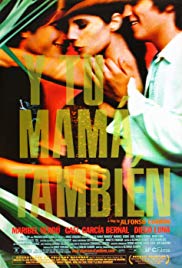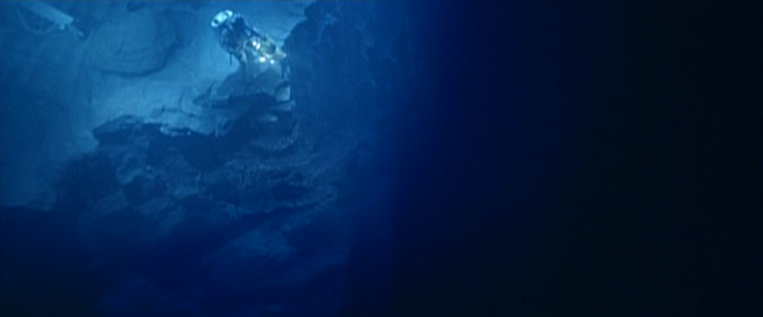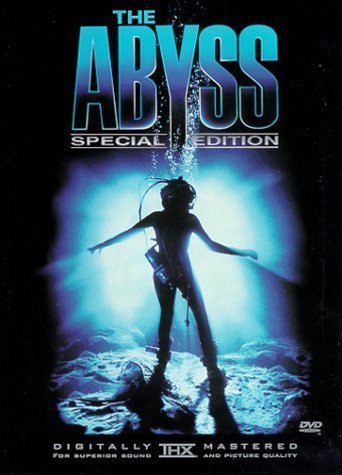From the Chicago Reader (April 5, 2002). — J.R.

A genuine rarity: a sex comedy with brains. Even rarer, one with smart politics — so unobtrusive you may not notice — and wonderful acting. Writer-director Alfonso Cuaron — best known here for two Hollywood efforts, the enchanting A Little Princess and the less enchanting Great Expectations — went back to his native Mexico to put together this road movie about two 17-year-old boys from Mexico City, one privileged, the other working-class. On an impulse, they take off for a remote coastal beach with a 28-year-old married woman. It’s not difficult to understand why this movie has been a smash success in Mexico, especially with teenagers; few films deal with teenage hormones, Latin machismo, and the complexities of friendship in such a refreshing way. The movie keeps surprising you and stays with you long after it’s over. With Diego Luna, Gael Garcia Bernal, and Maribel Verdu. In Spanish with subtitles. 105 min. Century 12 and CineArts 6, Crown Village 18, Esquire, Landmark’s Century Centre, North Riverside.
 Read more
Read more
This was probably my first review of a James Cameron film, published in the August 11, 1989 issue of the Chicago Reader. It’s a review that helps to explain, in any case, some of the reasons why I dislike Avatar. — J.R.

THE ABYSS
** (Worth seeing)
Directed and written by James Cameron
With Ed Harris, Mary Elizabeth Mastrantonio, Michael Biehn, John Bedford Lloyd, Leo Burmester, Todd Graff, and Kimberly Scott.

To satisfy these new cravings of human vanity, the arts have recourse to every species of imposture; and these devices sometimes go so far as to defeat their own purpose. Imitation diamonds are now made which may be easily mistaken for real ones; as soon as the art of fabricating false diamonds shall become so perfect that they cannot be distinguished from real ones, it is probable that both will be abandoned, and become mere pebbles again. — Alexis de Tocqueville, Democracy in America (1835)
I happened to see The Abyss with someone who only sees about three Hollywood movies a year. In a way it proved to be an appropriate choice for him, because it’s a veritable survey of big-budget Hollywood filmmaking in the 80s, as cannily up-to-date as the latest issue of Variety. Read more
Even though much of this early piece of mine about Ruiz (also available in my collection Placing Movies), originally published in separate versions in 1987 and 1990, is out of date by now, and also incorrect in spots, I’ve decided to reprint and illustrate it here, over three decades later, because of the way Ruiz inspired me to play various games of my own, as he did several years later when I wrote about him at some length again (here). (August 2011, shortly after Ruiz’s tragic death, I’ve also updated the illustrations for my 2002 interview with him for Cinema Scope.) — J.R.

Preface
The sheer otherness of Râúl Ruiz in a North American context has a lot to do with the peculiarities of funding in European state-operated television that make different kinds of work possible. The eccentric filmmaker in the United States or Canada who wants to make marginal films usually has to adopt the badge or shield of a school or genre — art film, avant-garde film, punk film, feminist film, documentary, or academic theory film— in order to get funding at one end, distribution, promotion, and criticism at the other. Ruiz, however, needs only to accept the institutional framework of state television — which offers, as he puts it, holes to be filled — and he automatically acquires a commission and an audience without having to settle on any binding affiliation or label beyond the open-ended rubric of “culture” or “education.” Read more





